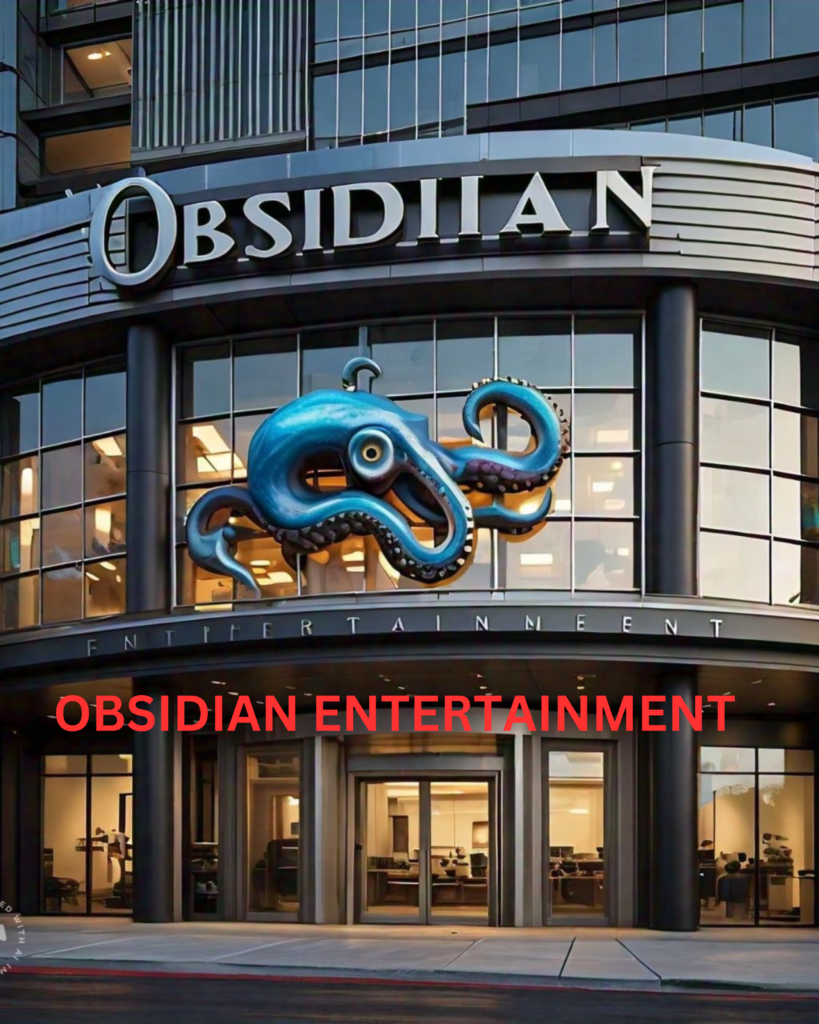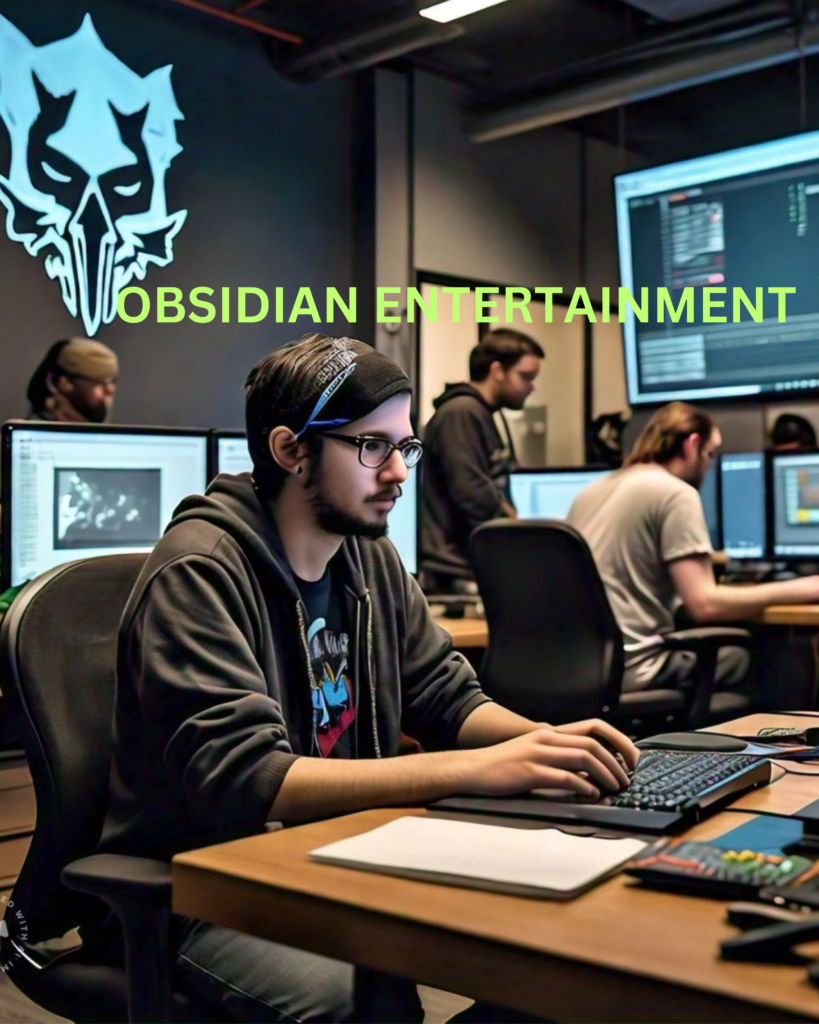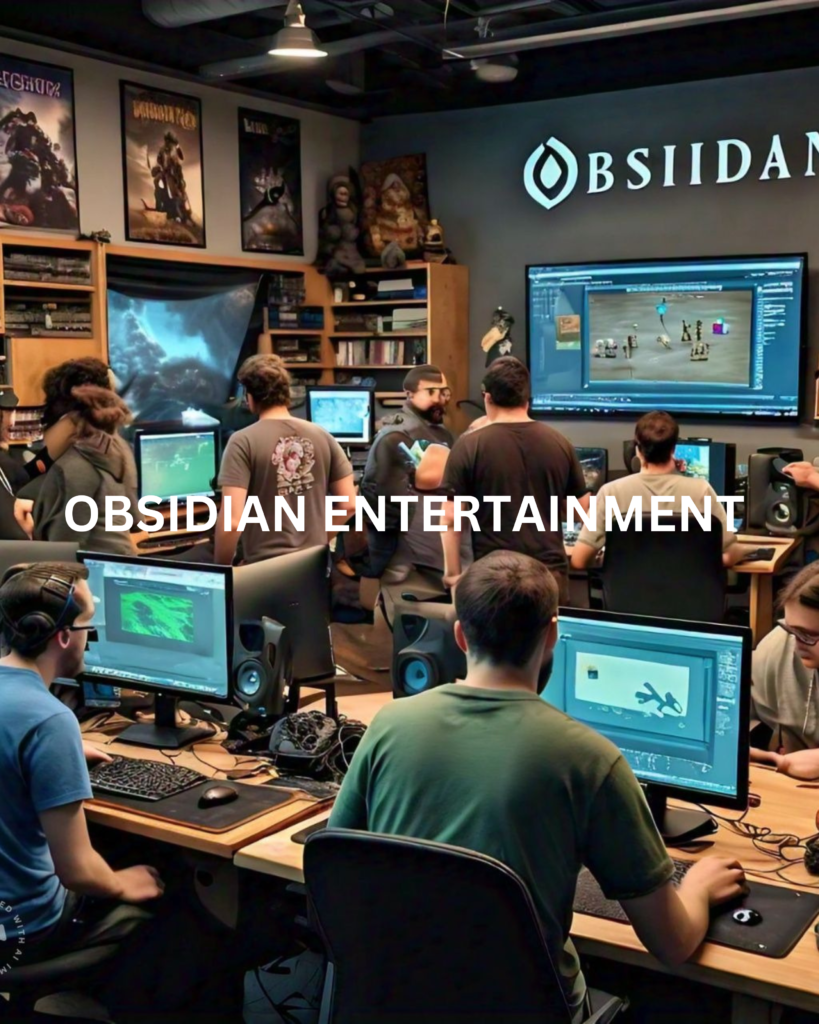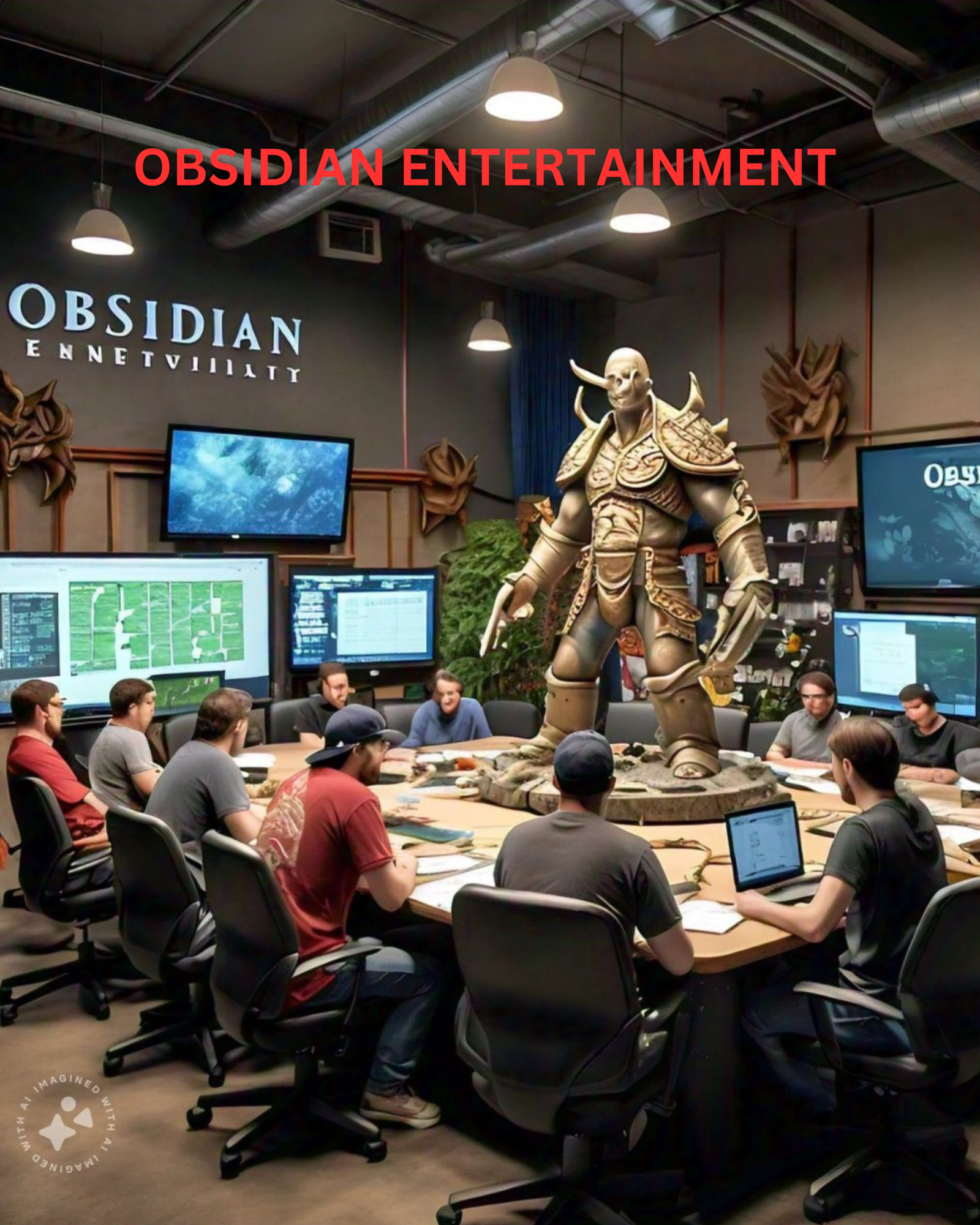Obsidian Entertainment, a name synonymous with deep, immersive role-playing games (RPGs), has left a significant mark on the gaming industry since its inception in 2003. The studio, known for creating beloved titles like *Fallout: New Vegas*, *Pillars of Eternity*, and *The Outer Worlds*, has earned a dedicated fan base over the years. But as 2024 unfolds, the question arises: Is Obsidian still riding high on its legacy of success, or is it struggling to keep up with the ever-evolving gaming landscape?
A Legacy Built Obsidian entertainment on Storytelling and RPG Mastery
Obsidian entertainment strength has always been its ability to craft intricate narratives and immersive worlds. Many of its titles offer players choices that deeply affect the storyline, making them feel invested in the outcomes. This approach has won the studio critical acclaim and a loyal fan base. Games like *Fallout: New Vegas* are still regarded as some of the best RPG experiences in the history of gaming, praised for their complex characters, branching storylines, and rich world-building.
Obsidian entertainment *Pillars of Eternity* series, a nod to the classic isometric RPGs of the past, also helped to revive the genre and proved that there was still a dedicated market for deeply tactical, story-driven RPGs. *The Outer Worlds* in 2019 further demonstrated the studio’s prowess, combining humor, social commentary, and classic RPG elements with modern gameplay mechanics. These successes positioned Obsidian as one of the few studios that could consistently deliver meaningful RPG experiences in a world increasingly dominated by multiplayer games and microtransactions.

The Pressure to Evolve
However, as gaming evolves, the demand for innovation grows. While Obsidian entertainment has mastered the art of RPG storytelling, critics and fans alike have begun to question whether the studio is doing enough to keep up with current trends. With open-world RPGs like *The Witcher 3* and *Cyberpunk 2077* setting new standards in terms of scale, complexity, and production value, some argue that Obsidian’s offerings, while rich in narrative, feel smaller in scope and ambition.
In addition, the rise of multiplayer-focused games, live-service models, and procedurally generated worlds has shifted the industry’s focus. Studios are now expected to produce games that can sustain player engagement long after release, often through constant updates and expansions. While Obsidian’s core strength lies in single-player RPGs, this shift towards multiplayer experiences has left some questioning the studio’s long-term adaptability.
Recent Developments: A Mixed Bag
In recent years, Obsidian entertainment has faced both praise and criticism. On one hand, the release of *Grounded*, a multiplayer survival game, was a surprising but welcomed departure from the studio’s usual fare. Though a smaller-scale project, *Grounded* found success by tapping into the multiplayer survival genre, proving that Obsidian could adapt and appeal to a broader audience.
However, not all recent endeavors have been met with universal acclaim. *The Outer Worlds* received praise upon release, but its DLCs and additional content haven’t managed to capture the same magic. Some fans felt the expansions were lackluster, leaving them wondering whether Obsidian is struggling to maintain the level of innovation that once defined its games.
Moreover, Obsidian’s partnership with Microsoft, following the acquisition by Xbox Game Studios in 2018, has sparked further debate. While many hoped this acquisition would provide the studio with more resources and creative freedom, others worry that it might lead to a shift in priorities. Could the pressure to align with Xbox’s broader strategy affect Obsidian’s focus on creating story-driven, single-player RPGs? Only time will tell.

What’s on the Horizon for 2024?
Looking ahead to 2024, Obsidian entertainment is poised to release *Avowed*, a first-person RPG set in the same universe as *Pillars of Eternity*. The game has generated significant buzz, with many comparing it to *The Elder Scrolls* series. If successful, *Avowed* could reaffirm Obsidian’s position as one of the best RPG developers in the world. However, the game’s development has been shrouded in some uncertainty, with reports of changes to its direction and scope. Fans and critics alike are eager to see if *Avowed* will live up to expectations and breathe new life into Obsidian’s portfolio.
In addition, Obsidian entertainment is working on *The Outer Worlds 2*, the sequel to the 2019 hit. While the first game was well-received, the sequel will need to offer something truly groundbreaking to stand out in an increasingly competitive market. Fans are hoping that *The Outer Worlds 2* will refine the formula of its predecessor, offering more expansive worlds, deeper customization, and more ambitious storytelling.
The Challenges of Staying Relevant
Obsidian Entertainment faces a unique set of challenges as it continues to evolve. The studio’s reputation for crafting deep, narrative-driven RPGs has set high expectations, but the gaming landscape is shifting. Open-world games are becoming more massive, procedurally generated worlds are more popular, and multiplayer experiences are now dominating the market. To stay relevant, Obsidian must find ways to adapt without losing the core elements that have made its games so beloved.
The success of *Avowed* and *The Outer Worlds 2* will be crucial in determining whether Obsidian can keep pace with the industry while maintaining its identity. The studio’s ability to deliver innovative, story-rich RPGs in an era of increasingly large-scale, multiplayer-focused games will define its legacy in the years to come.

Conclusion: A Legacy at a Crossroads
As we move further into 2024, Obsidian Entertainment stands at a crossroads. Its legacy as a master of narrative-driven RPGs is secure, but the studio now faces the challenge of evolving with the industry. Can it continue to thrive in an era where multiplayer experiences and massive open worlds dominate the market? Or will its focus on smaller-scale, single-player RPGs limit its future growth?
Ultimately, Obsidian’s future success hinges on its ability to innovate while staying true to its roots. If *Avowed* and *The Outer Worlds 2* can deliver the groundbreaking experiences fans expect, Obsidian may once again prove that it is a force to be reckoned with in the gaming world. But if these titles fall short, the studio’s glory days may begin to fade.
FAQs About
1. What makes Obsidian Entertainment stand out in the gaming industry?
Obsidian is known for creating deeply immersive RPGs with rich storytelling, intricate characters, and complex moral choices. Games like *Fallout: New Vegas* and *Pillars of Eternity* have solidified its reputation for delivering high-quality, narrative-driven experiences.
2. What are the upcoming games from Obsidian in 2024?
Obsidian is set to release *Avowed*, a first-person RPG set in the *Pillars of Eternity* universe, and *The Outer Worlds 2*, the sequel to its 2019 hit. Both titles are highly anticipated and could shape the future of the studio.
3. Is Obsidian Entertainment struggling to stay relevant in the current gaming landscape?
While Obsidian remains respected for its RPGs, the gaming industry has shifted towards larger open-world and multiplayer experiences. Some critics wonder if Obsidian can adapt while maintaining the quality and focus of its traditional single-player games.
